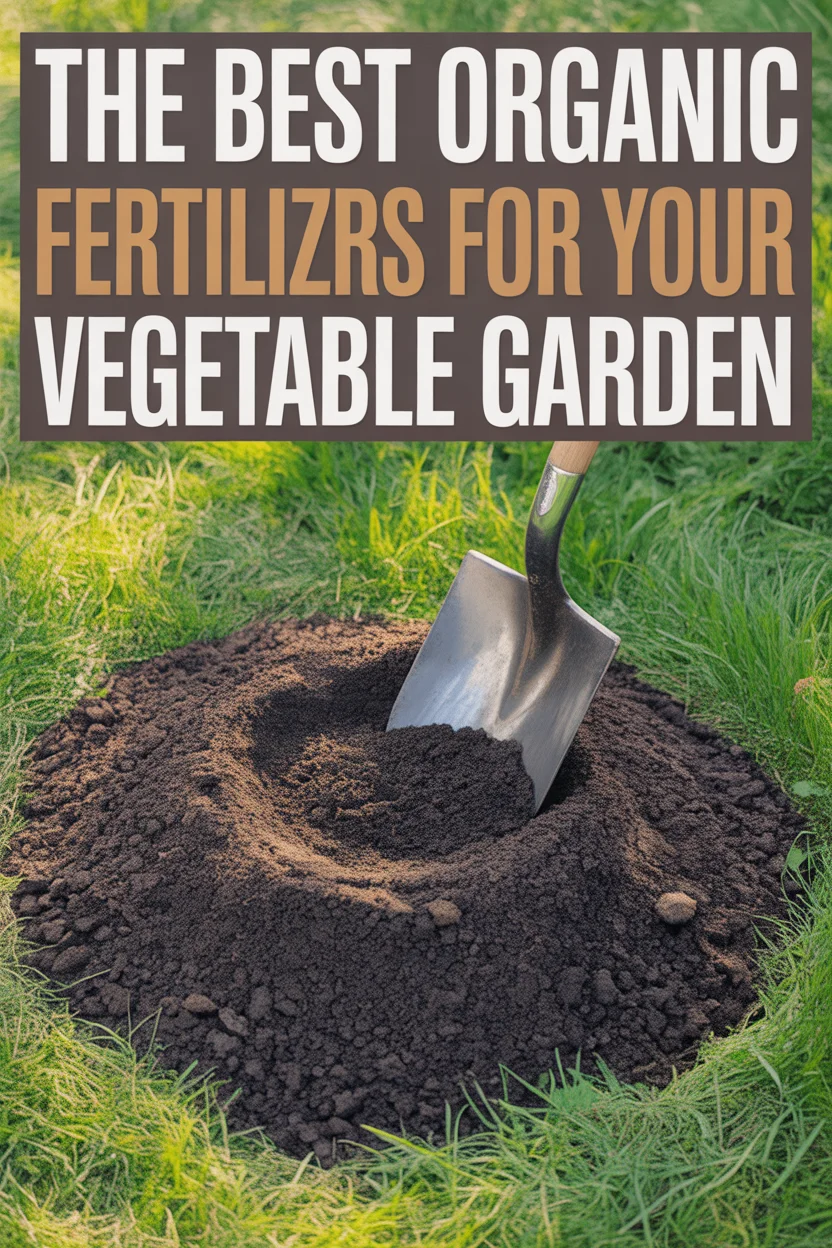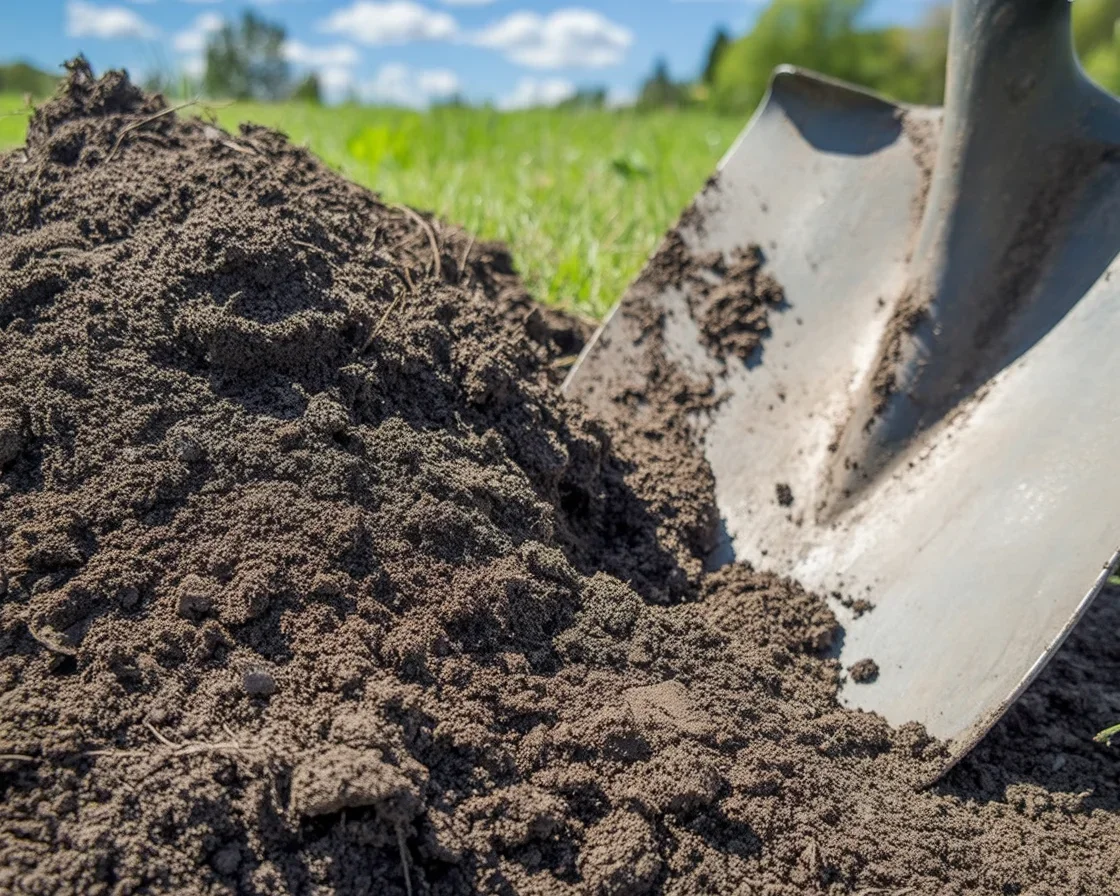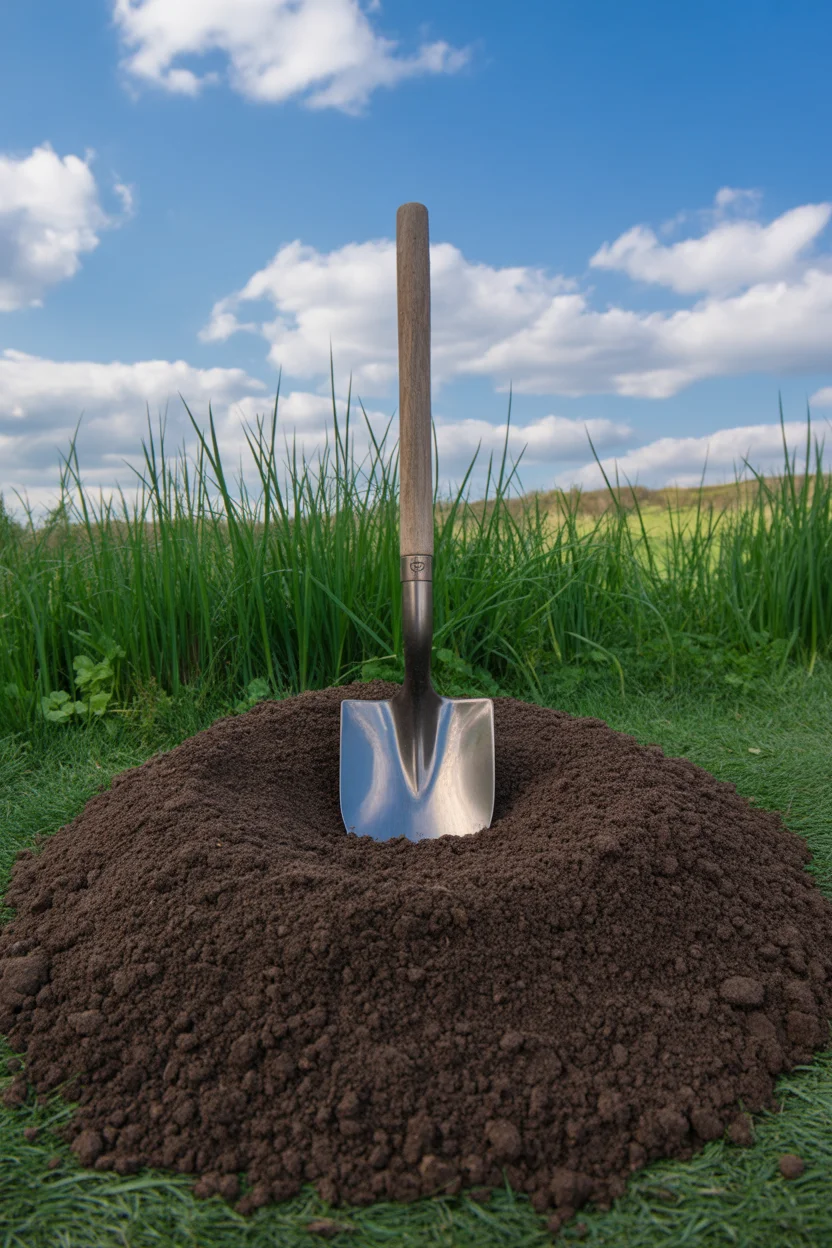Ever found yourself poking at wilted tomato leaves and wondering if you’re doing something wrong? If you want Organic Fertilizers for Your Vegetable Garden that actually work (and aren’t just another internet myth), I totally get why you’re here. Honestly, buying that fancy, expensive bottle from the garden center isn’t always the answer either. I remember the first time I tried making compost myself…
It was less Martha Stewart and more “what’s that smell?” But it paid off. It’s wild how a little know-how (and, okay, a bit of trial and error) will kick your veggies into gear. If you’re just starting out, check out these tips for vegetable container gardening for beginners or get inspired with ideas on how 5 garden wall kitchens transform your space. Figuring out which fertilizer is best? Well, let’s break it down together.
Table of Contents
What is Organic Fertilizer?
Let’s be real. When someone says “organic fertilizer,” it sounds much fancier than it is. Simply put, organic fertilizer is just plant food that comes from natural sources. No synthetic chemicals in here, folks. That means things like compost, worm castings, aged manure, and food scraps—all those smelly but mighty helpers.
You’re basically using the power of natural decomposition (and sometimes a few wriggly worms) to turn trash into “veg gold.” Unlike chemical mixes, organic fertilizers feed the soil, not just the plants. That means healthier dirt, which leads to bumper crops and way tastier food, if you ask me.
Honestly, the sciencey stuff behind it is cool, but for most home gardeners, it’s about working with nature’s toolbox. If you can throw kitchen scraps into a pile and sprinkle some on your garden, you’re basically already winning at this. 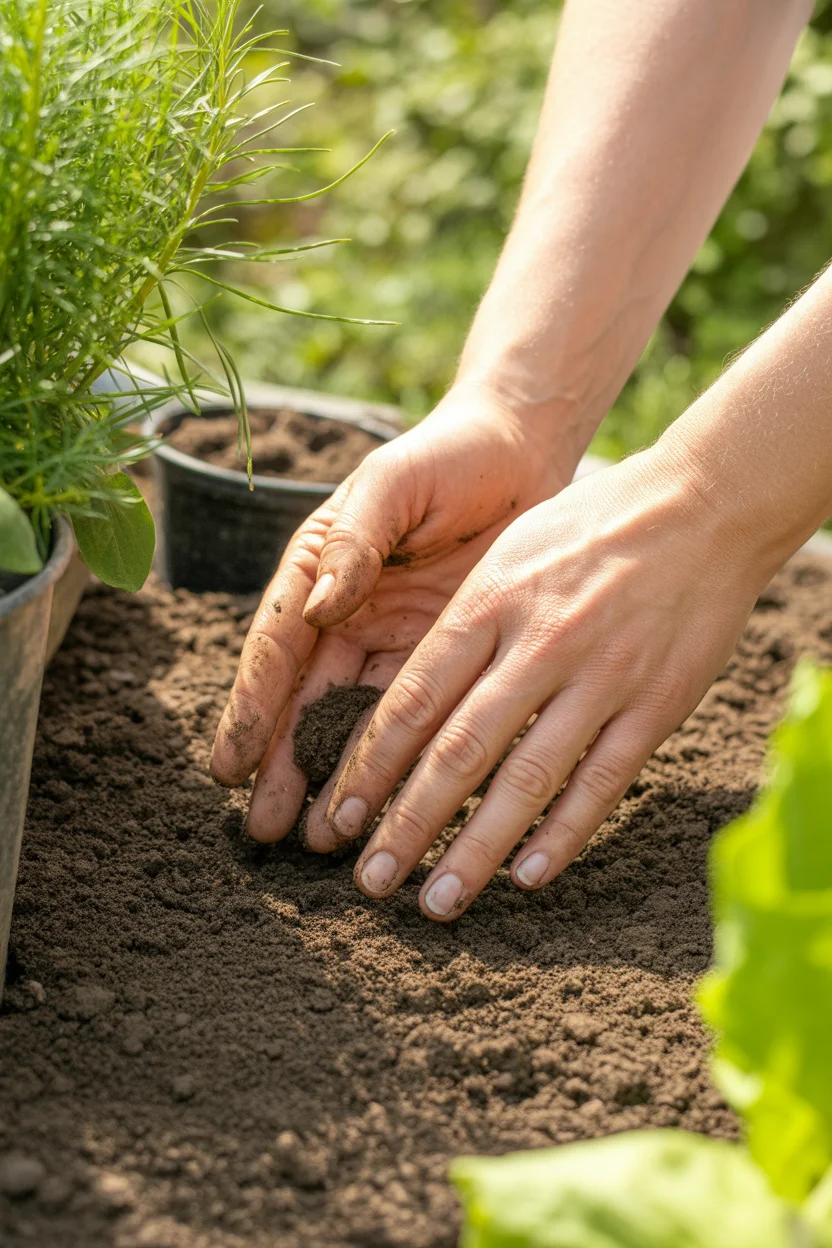
Why Healthy Soil Matters to Your Garden
Here’s the scoop: good soil is like a five-star restaurant for your plants. Without it, you might as well serve your veggies cardboard for dinner (not that I’ve tried that). Healthy soil packs nutrients, holds on to water, and lets roots breathe.
Ever noticed your neighbor’s zucchini always looks better? Nine times out of ten, it’s the dirt. With solid, organic-rich soil, your garden becomes more resistant to pests and doesn’t dry out at the first sign of summer heat. Plus, your harvest tastes so much richer.
If you’re not sure how your soil’s doing, scoop up a handful. Is it crumbly and rich-smelling? You’re in business. If it’s hard and pale—a little TLC and some good organic fertilizer will make all the difference. Trust me, I learned the hard way. 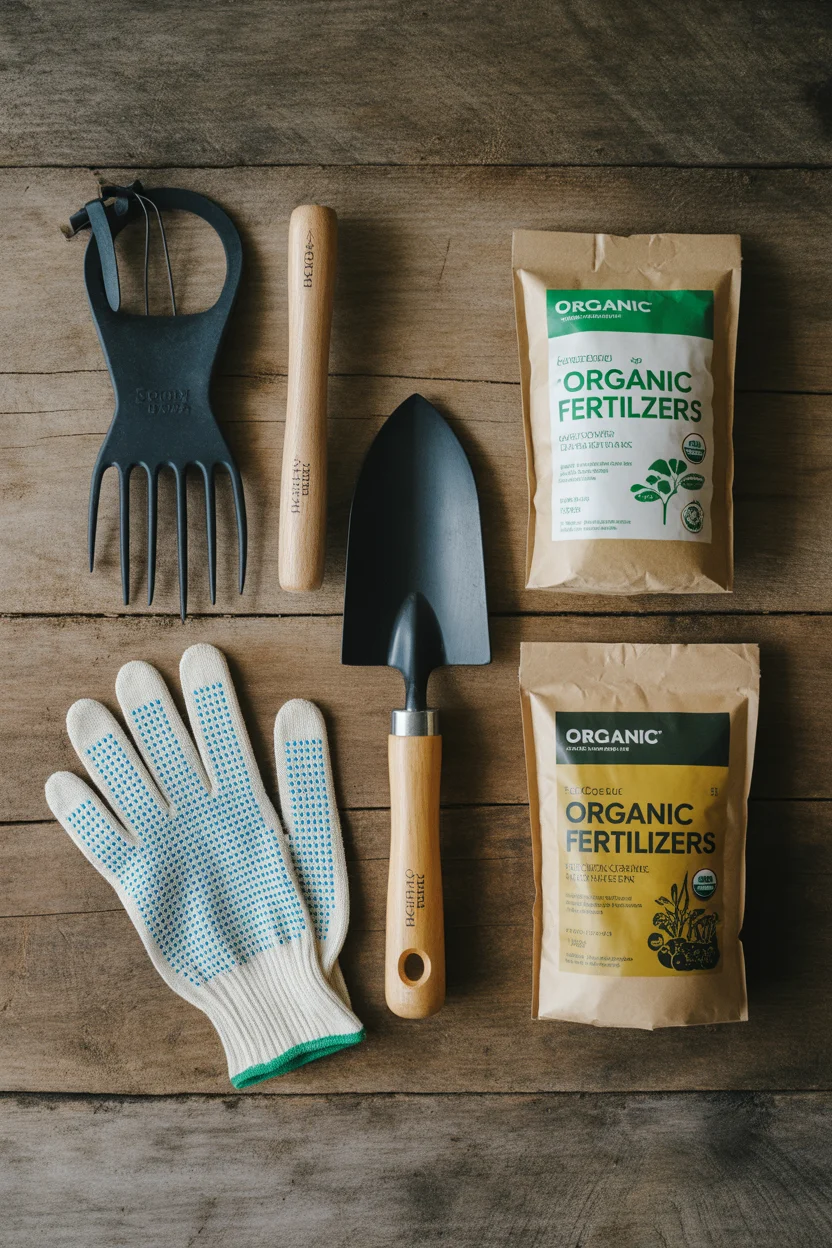
When Should I Add Fertilizer to My Vegetable Garden?
Timing is everything (I’ve learned this after more than a few sad lettuce sprouts). It’s usually best to feed your veggies in early spring, right before planting. That gives them a head start. You should also toss a little extra fertilizer mid-growth, especially for those heavy feeders like tomatoes and peppers.
Here’s a table if you’re a visual type (I’m totally a sticky-note person, by the way):
| Vegetable | Best Time to Fertilize | Recommended Fertilizer | Extra Notes |
|---|---|---|---|
| Tomatoes | At planting, mid-season | Compost/Manure | Needs ongoing feeding |
| Leafy Greens | At planting | Worm castings | Keep nitrogen high |
| Root Vegetables | At planting | Balanced mix | Don’t over-fertilize |
| Squash/Zucchini | At planting, every 4 weeks | Compost | Loves steady nutrients |
Don’t stress if you miss a date—it’s better to feed late than never (your plants will forgive you). 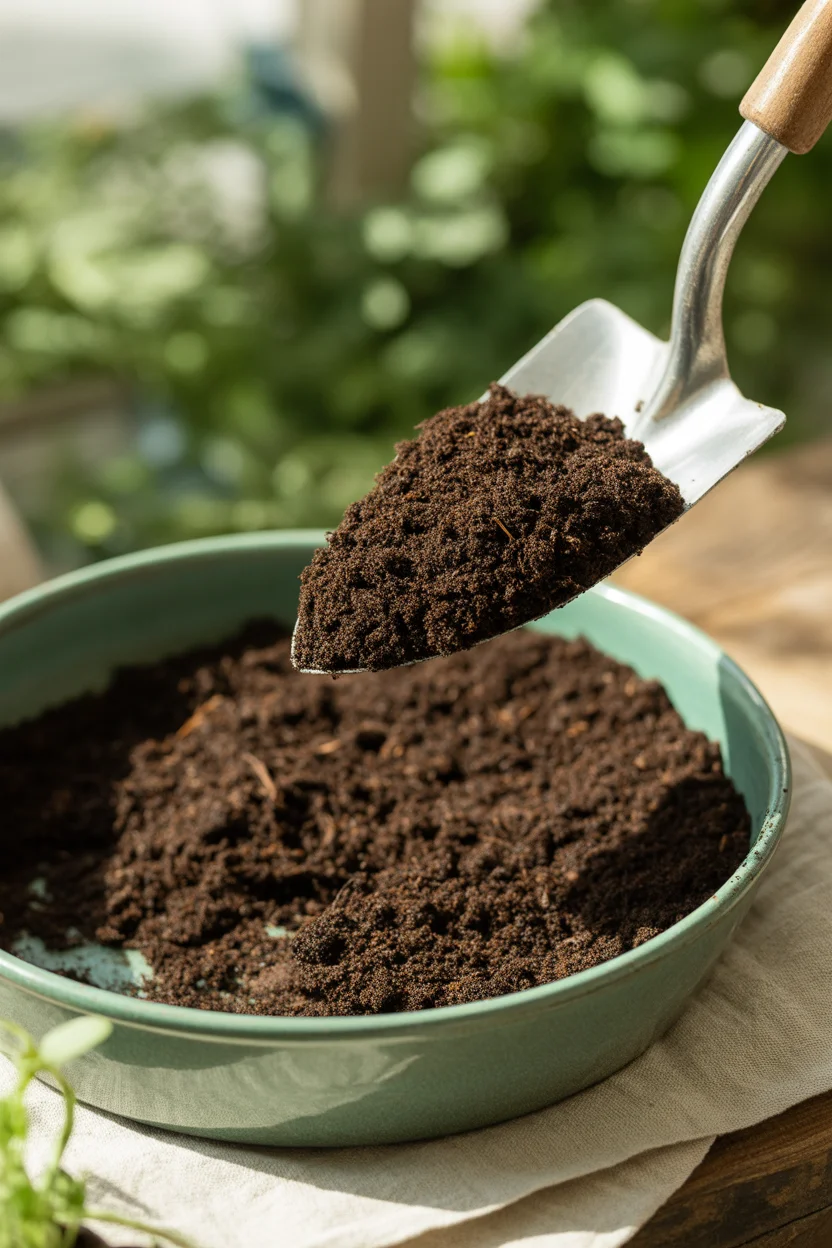
The Best Organic Fertilizers for Your Vegetable Garden
Now, let’s talk about the real stars of the show. Here’s what’s worked for me (and not just because that’s what the bag said).
- Compost: This is basically my go-to. Kitchen scraps, leaves, coffee grounds—if it rots, it works.
- Worm Castings: Worm… poop. Sorry, but it’s like magic dust for plants. Seriously, things get HUGE.
- Aged Manure: Chicken or cow manure that’s been aged. Fresh stuff will burn your garden.
- Fish Emulsion: Smells like the docks, but wow, basil loves it.
- Banana Peel Tea: Bananas in water for a couple days. Strain and pour—it’s simple!
If you want to get a bit creative, check out this wild list of 10 purple plants that make your garden top or spruce up shady corners with shade-loving plants perfect for container gardens. Your veggies will thank you.
How to Add Fertilizer to Your Garden
So here’s where folks usually overthink things (been there, bought the T-shirt). Adding organic fertilizer is…well…simple. Just spread a layer of compost or whatever you’re using around the base of your veggies and gently mix it into the top layer of soil with a trowel. Water it in after.
Compost and worm castings can go directly in the planting hole. For liquids like fish emulsion, dilute with water first, or you might shock your greens (they can be drama queens).
You don’t need fancy gear—just your hands, a shovel, and maybe gloves if you dislike squishy things under your nails. Have fun with it, honestly. Part of the joy is getting a little dirty.
How to fertilize a vegetable garden organically?
Let’s keep this super actionable. Here’s how I do it, and it’s what I tell friends who want the real dirt, pun intended:
- Start by working in compost during early spring.
- Every few weeks, top-dress with more compost or worm castings.
- For quick boosts, spray diluted fish emulsion or compost tea directly on leaves.
- Watch your plants. Yellow leaves? Add a little more. Growing like gangbusters? Take it easy.
It’s less about measurements and more about paying attention. My grandma used to say, “The best fertilizer is the gardener’s shadow.” Sounds old-fashioned, but it works.
Is 10-10-10 a good fertilizer for vegetables?
Alright, you’ve probably seen those jazzy bags marked 10-10-10. Here’s my two cents: It’s not really “organic.” That’s a synthetic blend of equal parts nitrogen, phosphorus, and potassium. It gives quick results, sure, but over time, it can damage the living things in your soil.
If you want homegrown flavor and soil that gets better every year, stick with organic options. Trust me, after a season on the natural stuff, my tomatoes have never looked so smug. You want happy worms and earth, not just fast growth. If someone insists 10-10-10 is better? Smile, and keep using what feels right for you. Your garden, your rules.
What is the best homemade fertilizer for vegetables?
Nothing beats homemade, let me tell you. Compost is hands-down my favorite. All those veggie peels and coffee grounds you toss? That’s gold just waiting to happen. I had a neighbor who swore by his banana peel tea, but honestly, egg shells for calcium and fish tank water for a quick nitrogen boost have worked just as well for me.
You don’t need a degree, just a little patience and willingness to experiment. Sometimes I toss in some leftover beer (for the yeast), and guess what? My cucumbers loved it. Wild, huh? Keep a bucket by the back door, dump in your scraps, and you’re halfway there.
“Switched to homemade compost three years ago—my carrots doubled in size and my tomatoes actually taste like tomatoes now. Never going back.”
— Jess, backyard gardener, Ohio
Common Questions
What is the best organic fertilizer for vegetables?
The best organic fertilizers for vegetables are nutrient-rich, slow-release, and soil-building. Top choices include:
Compost – Builds soil structure and feeds microbes.
Worm castings – Gentle, balanced, and great for root development.
Aged manure (cow, horse, chicken) – High in nitrogen; excellent before planting.
Fish emulsion – Quick-acting nitrogen for leafy greens.
Seaweed extract or kelp meal – Provides micronutrients and promotes resilience.
Bone meal – Boosts phosphorus for root crops and flowers.
Blood meal – High in nitrogen; best for fast-growing greens.
Look for certified organic products if buying commercially.
How to fertilize a vegetable garden organically?
Prepare the soil before planting by mixing in compost or aged manure.
Apply slow-release fertilizers (e.g., bone meal, fish meal) when planting.
Use liquid organic feeds (like seaweed or compost tea) every 2–4 weeks during the growing season.
Mulch with organic matter (straw, leaves) to retain nutrients and suppress weeds.
Test your soil annually to adjust your fertilizing plan based on actual nutrient needs.
What is the best fertilizer for a raised vegetable garden?
For raised beds, use a multi-layered approach:
Base layer: Add compost or aged manure before planting.
Amend annually with organic matter (compost, leaf mold).
Use organic fertilizers like:
All-purpose vegetable blends (e.g., 5-7-3 or 4-6-6)
Worm castings for delicate seedlings
Fish or kelp emulsion for periodic boosts
Mulch with straw or leaves to retain moisture and nutrients.
Is coffee ground a good fertilizer?
Used coffee grounds are moderately acidic and provide a small amount of nitrogen.
They are best mixed into compost or used as a mulch supplement, not as a complete fertilizer.
Use in moderation to avoid soil acidity buildup.
Coffee grounds also help improve soil texture and microbial activity.
Is 10-10-10 a good fertilizer for vegetables?
10-10-10 is a synthetic, balanced fertilizer (equal parts nitrogen, phosphorus, potassium).
It works well for general vegetable growth, but it is not organic.
If you’re following organic practices, opt for natural alternatives that offer similar balanced nutrition (e.g., a mix of compost, fish emulsion, and bone meal).
What is the best organic fertilizer for tomatoes and peppers?
Tomatoes and peppers are heavy feeders that benefit from:
Compost + worm castings at planting.
Tomato-tone or similar organic blends (low in nitrogen, high in phosphorus and potassium).
Bone meal (for blossoms and fruiting).
Epsom salts (provides magnesium, which supports chlorophyll and fruit development).
Apply a liquid feed every 2–3 weeks during flowering and fruiting stages.
Will organic fertilizer attract pests?
Sometimes, yes, especially if you use kitchen scraps. But a well-managed compost pile and proper burying keep critters at bay.
Is it cheaper to make my own or buy organic fertilizer?
Making your own is (usually) almost free. Just recycle what you already have at home!
How can I tell if I’ve over-fertilized?
Yellowing leaves, wilting, and burned edges are classic signs. Water things down, and skip the next round.
Can I mix different organic fertilizers?
Yes! Think of it like a hearty stew. Just avoid overloading—too much of a good thing can hurt your plants.
Do I need to fertilize container veggies differently?
Containers dry out faster and nutrients leach, so feed them more often. Learn more in this beginner’s guide
Ready, Set, Grow—You Got This!
Organic fertilizers for your vegetable garden don’t need to be expensive or complicated. Compost, worm castings, and a few funky teas can transform your soil and your veggies. Trust me, a thriving, tasty harvest is doable (and super rewarding). If you want to dig deeper, check out conversations like Fertilizer? : r/vegetablegardening for more real-life advice, and don’t miss 15 Easy Organic Fertilizers to Make at Home for DIY ideas. Now, get your hands in that dirt—your garden’s about to level up! 